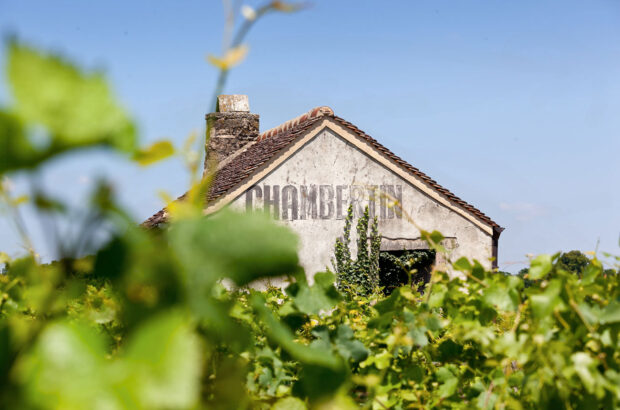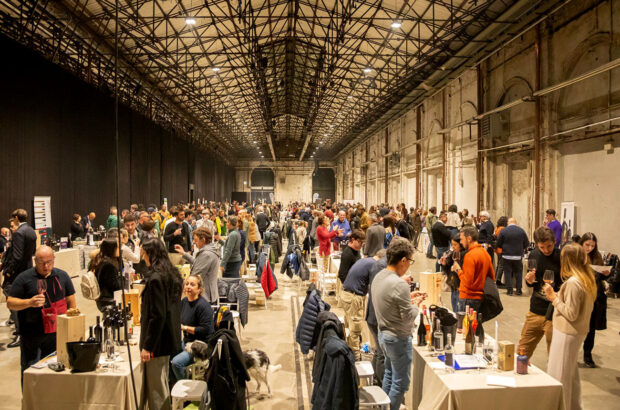It takes more than a passion for wine to buy a vineyard. NATASHA HUGHES looks at the legal, financial and logistical issues involved.
It takes more than a passion for wine to buy a vineyard. NATASHA HUGHES looks at the legal, financial and logistical issues involved.
Wine lovers all over the world have longed to buy a vineyard of their own. Those who have gone one step further and made that wish come true have learned – often the hard way – that the purchase of a vineyard is fraught with complexities, both practical and legal.
The first thing you need to ask is whether you want to make a few bottles of wine for your own enjoyment or if you want to run your vineyard as a commercial proposition. The answer will give you some idea of the scale you need to work with when you begin your search for a viable vineyard.
Each vine should give you between one and two bottles of wine (depending on yield, which depends further on the vine age and its management). Planting densities range from 3,000 to 6,000 vines per hectare. A simple calculation shows that a hectare of vines should yield roughly anywhere between 3,000 and 12,000 bottles of wine.
For a variety of reasons that range from the logistical (if you plant from scratch, it takes at least four years before you can make wine from your grapes) to the legal (it is virtually impossible to get planting rights for virgin land in France unless you already own established vineyards), it is simpler to look for land with well-established vineyards rather than unplanted acreage.
Prices for planted land vary widely, depending on where the vineyards are located, how well they’re maintained and the vines’ age. Bear in mind that any buildings sold with the land will be an additional cost – expect to pay as much for a residential building, whether it’s a cottage or a château, as you would if it were sold separately.
If you plan on making wine at your own domaine rather than transporting the grapes to a nearby winery and making wine there (which is only permitted in some parts of the world – France, for instance, insists that wine must be made on site unless you’re a member of a co-operative or are selling your grapes to a négociant), your purchase should come with a winery of some kind. But how much would it cost to build one from scratch?
If you take it for granted that certain vital elements of the infrastructure – water, electricity, a basic building to house the winery – are in place, you still have a huge shopping list to get through before you can start. Key items include a destemmer, press, pumps and hoses. You’ll need stainless steel, concrete or fibreglass tanks or wooden barrels for fermentation and ageing your wine, as well as equipment for temperature control, humidification and insulation. None of this comes cheap: count on spending a minimum of £200,000 for the basics. And, while this will give you the means to process the grapes from 10 hectares, you’d need to spend about the same amount for just one hectare.
Some equipment can be hired, but demand will be high at certain times of year. Most French wineries will hire the services of a bottling line instead of buying their own; unless you plan on running a vast commercial operation, this is the most sensible solution.
https://www.decanter.com/wine-news/french-wineries-2020-vintage-lockdown-435501/
Manpower can also be hired, but even the smallest winery needs someone on site permanently to ensure that all is running smoothly in vineyard and cellar. Consultant Sam Harrop MW says, ‘A 15ha vineyard would need a manager/winemaker with at least one full-time assistant, depending on the degree of mechanisation, plus additional staff during vintage.’ In France, a manager will earn about €40,000 a year, but you will also have to pay a large proportion of each employee’s tax on top of their salary.
There is, of course, a legal minefield to be negotiated when buying a vineyard, especially in the Old World. In France, you have to apply to the Department of Agriculture for permission to farm the land. ‘Although this is considered to be a formality in most cases,’ says Vinea Transaction’s Adam Dakin, ‘it usually takes four months before the permission comes through.’
In addition, SAFER, a government-run land agency, has pre-emptive rights on the sale of some agricultural land and can refuse permission for the purchase. Your property lawyer will check with SAFER during the conveyancing of the purchase, but it is worth noting as another potential source of delay.
And once you’ve bought your vineyard, the legal hassles aren’t over. ‘Every year you have to apply to the Conseil Interprofessionel for permission to harvest an amount determined by them,’ says Francis Anson of estate agent France Prestige. ‘To gauge your vineyard’s potential permitted yield, look at its track record over the past five years and get an average figure. It will also give you an idea of the average price fetched by the wine.’
https://www.decanter.com/wine-news/civb-announces-new-president-106478/
Anson recommends that anyone looking to buy a vineyard should enlist the services of a management consultancy firm with experience in the purchase of such properties, such as Ernst & Young or KPMG, as well as a lawyer. Doing so could make the difference between living the dream and dealing with a legal and logistical nightmare.
Italy – Bycsa M&A: l.cucchi@bycsa.it; +39 (0)2 634 81
Portugal – Solares & Quintas:
catarina@buisineviticonseil.com;
+33 (0)4 94 82 37 09
Spain – Vinea Espana: contact@vinea-espana.com; +34 (0)9 32 680 440
France – Vinea Transaction: fpauly@ vineatransaction.com; +33 (0)4 67 22 55 52 (Properties sold by these four agents can be viewed at www.vineatransaction.com)
Australia & New Zealand – Colin Gaetjens & Shaw: www.wineryforsale.
com.au; tlangley@cgswine.com.au;
+61 (0)8 8364 5600
Bordeaux, Languedoc-Roussillon, Provence – France Prestige: www.france-prestige-real-estate.com; contact@ france-prestige-real-estate.com; +33 (0)4 66 79 36 62
California – Maher & Associates:
www.maherwine.com; sean@maherwine.com; +1 707 963 8266
Napa Valley – Yvonne Rich:
www.fabulousnapavalley.com; yvonne@fabulousnapavalley.com; +1 707 968 9888
South Africa – The Pam Golding Group:
www.pamgolding.co.za; winelandsint@pamgolding.co.za;
+27 21 876 2100







